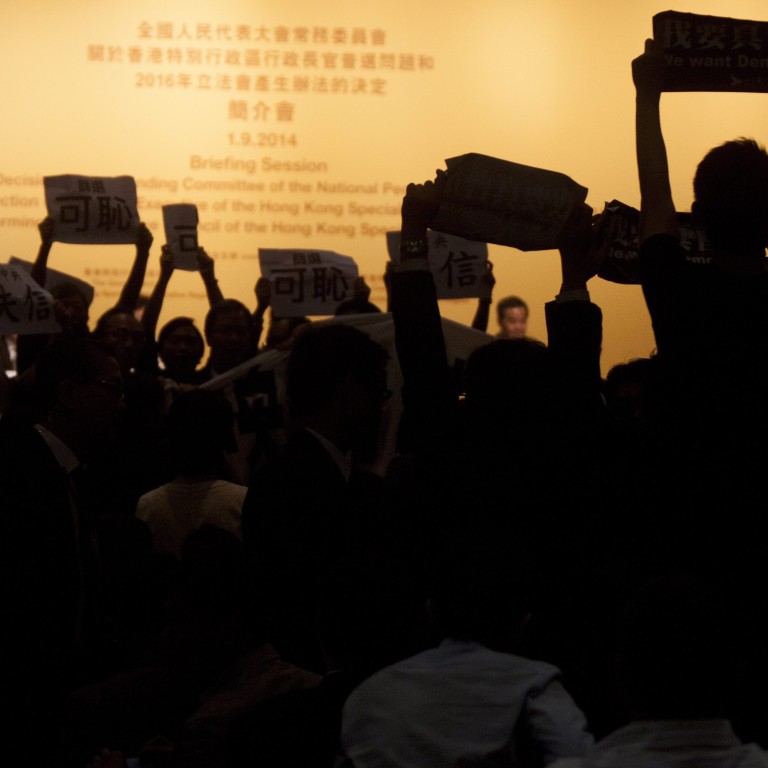
When political reform was turned into a battle, Hong Kong became the loser
Alice Wu laments the lost chances for political reform - all because we misdirected our efforts into beating an enemy that never was
Many commentators have likened the entire process that ended with the National People's Congress Standing Committee's tougher-than-expected framework for Hong Kong's political reform to a poker game - in the end, Beijing called Occupy Central's bluff.
I've never liked poker. And I think what most of us are wondering right now is why we all had to be dragged into this high-stakes game.
Occupy Central is a campaign. It's supposed to be loud and attention-grabbing. The fact that it got everyone's attention, especially Beijing's, testifies to its success. Founder Benny Tai Yiu-ting may have admitted "failure" last week, but it failed only in not pushing the Standing Committee to rule in its favour.
Occupy Central was heard loud and clear. But it was by no means the only voice in the electoral reform debate.
The issues that we have to address are complex, and there were plenty of moderate viewpoints offering thoughtful suggestions and proposals. It's most frustrating to see that none was given the chance to see the light of day.
It is inconceivable that Beijing does not know the "actual situation" in Hong Kong - namely, the democratic aspirations of the people, and why those aspirations are highly practical. The systemic dysfunction of the current electoral arrangements have rendered the office of the chief executive unable to govern, so that year after year, the list of our headaches grows longer with no cure in sight. This is a problem to be solved, not a fight to be won.
But Beijing decided this was a full-on fight, and chose to see Occupy Central at the front and centre of its enemy's lines. It's utterly tragic that our electoral reform process has been framed as such. Foreign interference is the ultimate trump card - once it's played, there is very little that can be done.
Former chief executive and current vice-chairman of the Chinese People's Political Consultative Conference Tung Chee-hwa made a rare appearance back in the political limelight last week, in an effort to "appeal to people of all political stripes to come together and turn negative sentiments into positive energy". That's a nice thought - noble, even - but it's going to take a lot more than appeals.
Tung said he understood the "deeply and strongly felt emotions" of the pan-democrats at the NPC decision. There are others who feel just as strongly, and perhaps Tung will see fit to convey their thoughts to Beijing.
By turning the electoral reform discussion into a poker game, a huge portion of the population was cut out. We alienated the majority of Hongkongers by concentrating only on the two ends of the political spectrum, thereby miscasting what should have been a negotiation into a conflict between enemies.
Hongkongers aren't Beijing's enemies - that is just not the reality. The challenge remains for Hong Kong's "middle" to be heard above the battle cries.
Many moderates, though deeply disappointed with the Standing Committee's ultra-conservative framework, are willing to keep at it, even if it means working within more constraints. That work is important, now more than ever. Ultimatum politics has had its day.

